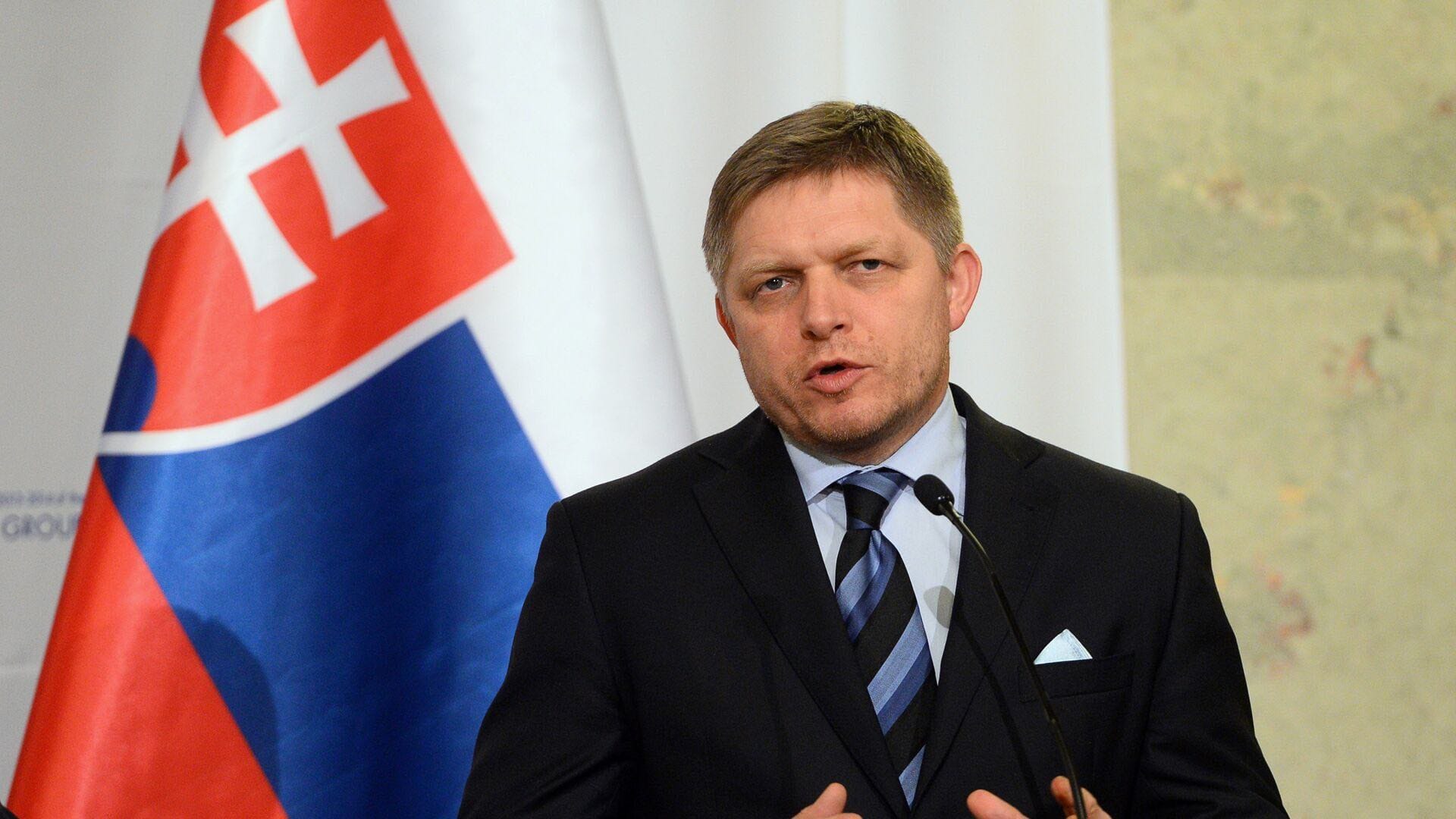Slovakian Prime Minister Robert Fico, Opposes Ukraine Joining NATO
In a controversial and bold statement, Slovakian Prime Minister Robert Fico has broken his silence on Ukraine's NATO membership bid, declaring that he does not support it.

In a controversial and bold statement, Slovakian Prime Minister Robert Fico has broken his silence on Ukraine's NATO membership bid, declaring that he does not support it and warning that such a move could lead to a global conflict. Fico's assertion that "Ukraine’s membership in NATO would only guarantee World War III" has sent shockwaves through the international community and sparked intense debate among NATO allies.
Fico’s Statement and Concerns
During a press conference, Fico articulated his position, emphasizing the potential risks of Ukraine joining NATO. He stated, "We believe that Ukraine’s accession to NATO at this time would escalate tensions and lead to a broader conflict, potentially igniting World War III." This stark warning reflects Fico's deep concerns about the geopolitical ramifications of NATO expansion eastward.
Regional and International Reactions
Fico's statement has significant implications for the regional political landscape, particularly for Slovakia, which shares a border with Ukraine. His opposition to Ukraine’s NATO membership aligns with a cautious approach to avoid provoking Russia, which views NATO’s expansion as a direct threat to its security.
Internationally, Fico’s comments have drawn mixed reactions. Some NATO members have expressed dismay, arguing that Ukraine’s inclusion in the alliance is crucial for regional security and a deterrent against Russian aggression. Others, however, share Fico’s concerns about the potential for increased tensions and conflict.
Domestic Response
Within Slovakia, reactions to Fico's announcement are divided. Supporters of Fico’s stance argue that avoiding further escalation with Russia is a prudent and necessary strategy. They believe that diplomatic solutions and stability should be prioritized. Critics, on the other hand, accuse Fico of abandoning Ukraine in its time of need and undermining the broader European solidarity against Russian aggression.
Political analysts suggest that Fico’s position may also be influenced by domestic political considerations, including Slovakia’s economic ties with Russia and public apprehension about becoming involved in a major geopolitical conflict.
NATO’s Position and Future Steps
NATO officials have yet to issue an official response to Fico’s statement. The alliance faces a complex decision-making process as it considers the diverse perspectives of its member states. NATO Secretary General Jens Stoltenberg has reiterated that the decision to admit new members rests with the alliance and the applicant country, independent of external influence.
Fico’s opposition adds a new dimension to the ongoing discussions about NATO’s future direction and expansion. The balance between deterring aggression and avoiding provocation will be a key consideration for NATO as it navigates this challenging issue.
Prime Minister Robert Fico’s decision to break his silence on Ukraine’s NATO membership has introduced a critical perspective to the debate, emphasizing the potential risks of escalating global tensions. As Slovakia and the international community digest Fico’s warning, the broader implications for NATO and regional stability will continue to unfold. The coming months will be crucial as NATO allies deliberate on the best path forward in light of these new developments.





